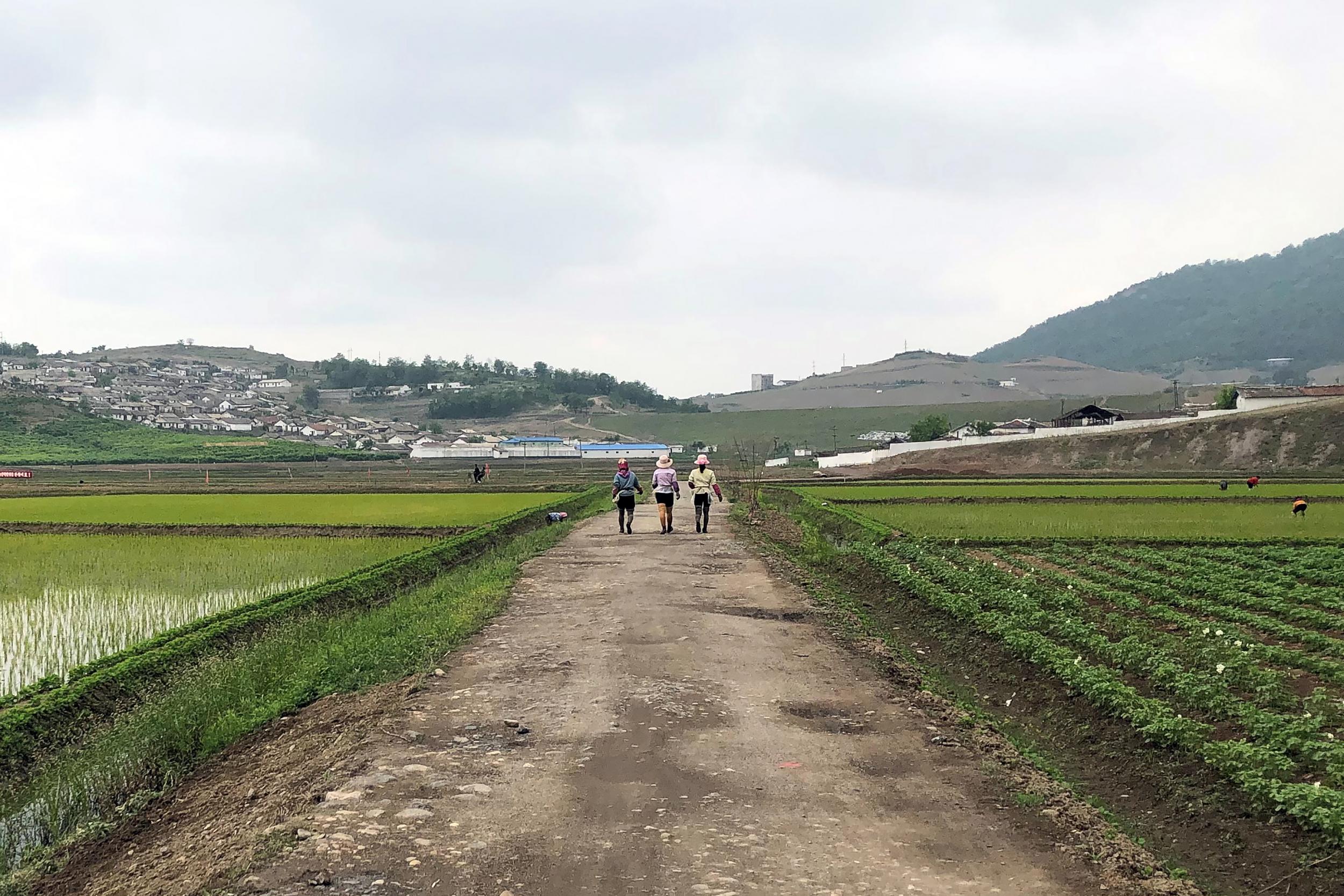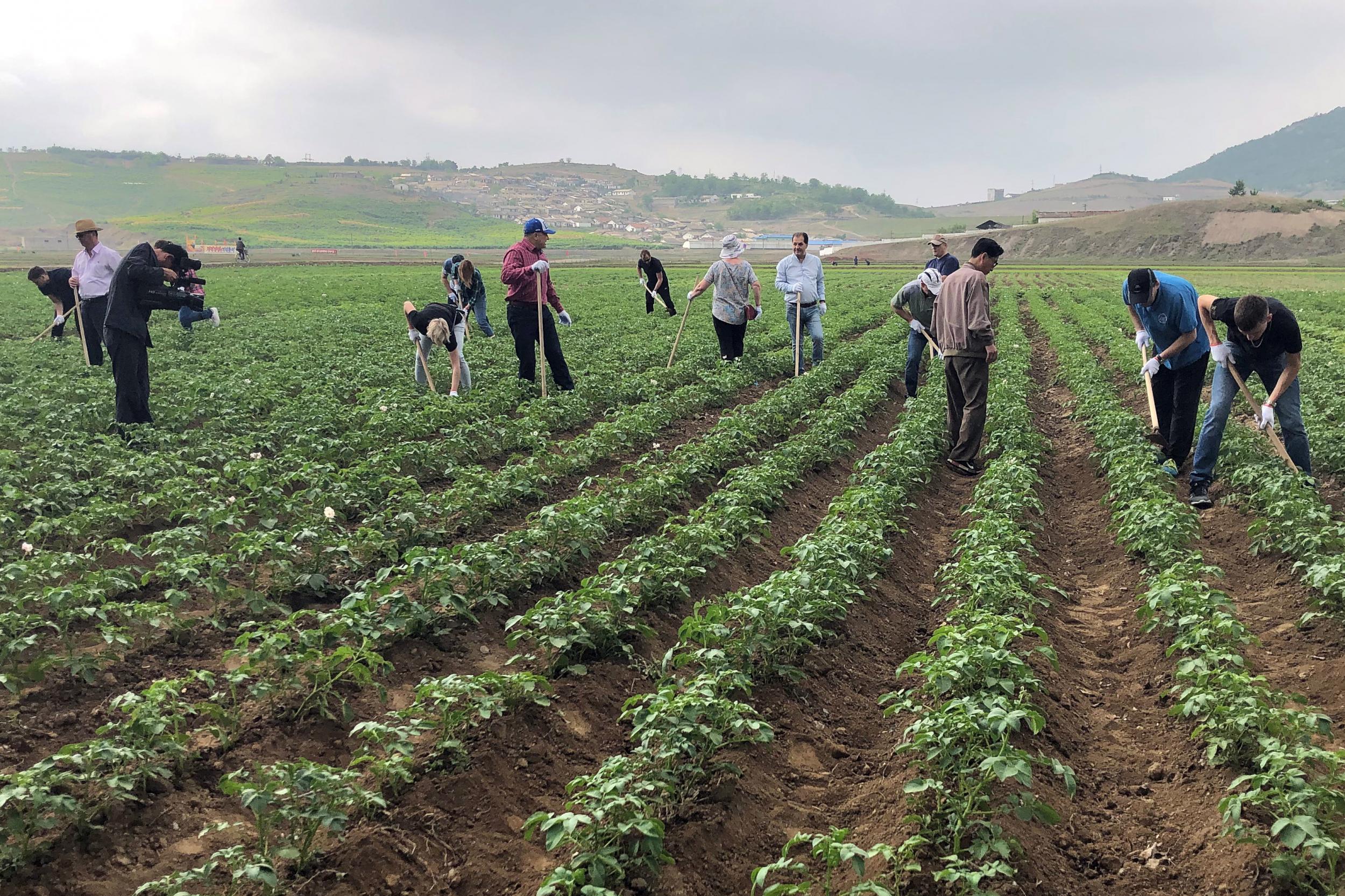South Korea donates 50,000 tonnes of rice to North as 10 million people at risk of starvation
'Many families survive on a monotonous diet of rice and kimchi most of the year, eating very little protein'

Your support helps us to tell the story
From reproductive rights to climate change to Big Tech, The Independent is on the ground when the story is developing. Whether it's investigating the financials of Elon Musk's pro-Trump PAC or producing our latest documentary, 'The A Word', which shines a light on the American women fighting for reproductive rights, we know how important it is to parse out the facts from the messaging.
At such a critical moment in US history, we need reporters on the ground. Your donation allows us to keep sending journalists to speak to both sides of the story.
The Independent is trusted by Americans across the entire political spectrum. And unlike many other quality news outlets, we choose not to lock Americans out of our reporting and analysis with paywalls. We believe quality journalism should be available to everyone, paid for by those who can afford it.
Your support makes all the difference.South Korea is donating 50,000 tonnes of rice and £3.5m to North Korea as a severe drought and resulting food shortages puts 10.1m at risk of starvation.
North Korea has been hard hit by droughts, heatwaves and floods that have led to the worst harvest season in ten years and a 1.36m tonne shortage of food.
The southern republic announced on Wednesday its plans to donate the food and money to address the critical food situation in the north.
“The Government hopes that the food aid provided through the World Food Programme (WFP) can be delivered to the North Korean people without play.”
In a statement, the WFP, welcomed the landmark donation.
However, its Asia Pacific director David Kaatrud also estimated a total 300,000 tonnes of food was urgently needed to address the food shortage.

“The DPRK has been hit hard by drought and poor harvests that have left millions of hungry children, women and men facing severe food shortages over the coming months.”
A joint Food and Agriculture Organisation (FAO) and WFP food security assessment report released last month found food production in 2018 had dropped dramatically as a result of the record low harvest of 4.9m tons - the lowest in a decade.
As well as the unfavourable climate conditions it said limited supply of fuel, fertiliser and spare parts had also impacted the quantity of the harvest.
And the government’s Public Distribution System, on which a large portion of the population relies, had been forced to cut rations to the lowest ever level for this time of the year.
This nationwide food shortage had already led to people eating “worryingly” low amounts of food, limited dietary diversity and families were being forced to cut meals.
Co-lead of the mission Nicolas Bidault said: “Many families survive on a monotonous diet of rice and kimchi most of the year, eating very little protein.
“This is worrying because many communities are already extremely vulnerable and any further cuts to already minimal food rations, could push them deep into a hunger crisis,” he added.
He said the situation is particularly worrisome for young children and pregnant and breastfeeding women, who are the most vulnerable to malnutrition.
There are concerns that in the absence of substantial external assistance, rations may be further cut during the critical months of June-October, at the peak of the lean season.
Join our commenting forum
Join thought-provoking conversations, follow other Independent readers and see their replies
Comments